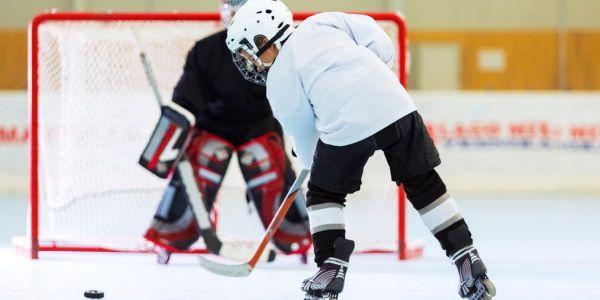
What do YOU do to shape and improve your athletic confidence?
Confidence is not something that happens to you. Building confidence is an action. If you do nothing, your confidence becomes dependent on results.
When you are not an active participant in growing your confidence, one day, your confidence will be up, and the next, it will be down, as if you are on a confidence roller coaster.
Most athletes think winning a game or tournament builds confidence, but that’s not always the case. Of course, winning can help you believe you can win again.
However, athletes with low confidence may attribute their success to luck.
Those athletes see the victory as a “one-and-done” event. They expect to return to their previous level of performance. In these instances, athletes feel confidence is not within their direct control.
Conversely, athletes with stable confidence spend time actively building self-belief. When these athletes win, they attribute their successes to their preparation, effort, and mental training.
When you understand confidence requires action, you will commit to proactively building it and keeping it.
Even a loss or bad performance won’t deplete your confidence. With stable, high confidence, you will learn from the experience, look for ways to improve for the next competition, then go to practice and get to work.
As you can see, the value of this mental skill is immeasurable to your athletic and personal development.
Let’s take a look at Philadelphia Sixers guard Jaden Springer.
Springer was selected with the 28th pick in the 2021 NBA draft by the Sixers. In his first year, the Sixers assigned Springer to their G League affiliate, the Delaware Blue Coats.
In his second year with Delaware, Springer consciously decided to build his confidence, and his dedication paid off. Springer was the second-leading scorer for Delaware and helped the Blue Coats win the NBA G League title.
After winning the championship game, Springer was named the most valuable player. Springer grew his confidence by utilizing various methods, such as intense training, elite-level preparation, attention to detail, and developing positive body posture.
SPRINGER: “Really details, man — the little things, [such as] my base, my foundation, my posture. Even just moving through (drills), nothing lazy — don’t have any bad posture, hanging over. Just keep your body up straight. Stay focused. And he always coaches the little things — how I carry myself, how I walk in. All that stuff matters.”
You should never underestimate the impact of even the slightest improvement in confidence. As with any technical or mental skill, improvement is within your direct control.
If your goal is to create high confidence, you need an action plan.
What steps will you take to improve your confidence? What strategies will you use? How will you keep confidence each week no matter your results?
Who will you enlist to help you with your goal? How will you measure your progress?
When you design an action plan, you are more likely to stick to your plan and focus your efforts on accomplishing your goal. Contact us if you want help developing the confidence plan.
Related Sports Psychology Articles
- The Mindset to Perform at a Higher Level
- Having Fun While Performing at Your Best
- The Importance of Mental Toughness
*Subscribe to The Sports Psychology Podcast on iTunes
*Subscribe to The Sports Psychology Podcast on Spotify
Download a free sports psychology report to improve your mental game!
Learn more about our one-on-one mental game coaching.

The Relaxed Athlete
You can possess all the physical talent in the world, the best equipment money can buy, and train harder or longer than anyone else in your sport or on your team, but if self-doubt enters your mind prior to competition, you simply will not realize your true potential in sports.
The Relaxed Athlete” audio and workbook program teaches you mental strategies to develop a focused and confident pregame routine for a poised and relaxed mindset. Learn how to get your mind right by overcoming pregame anxiety and worry.
